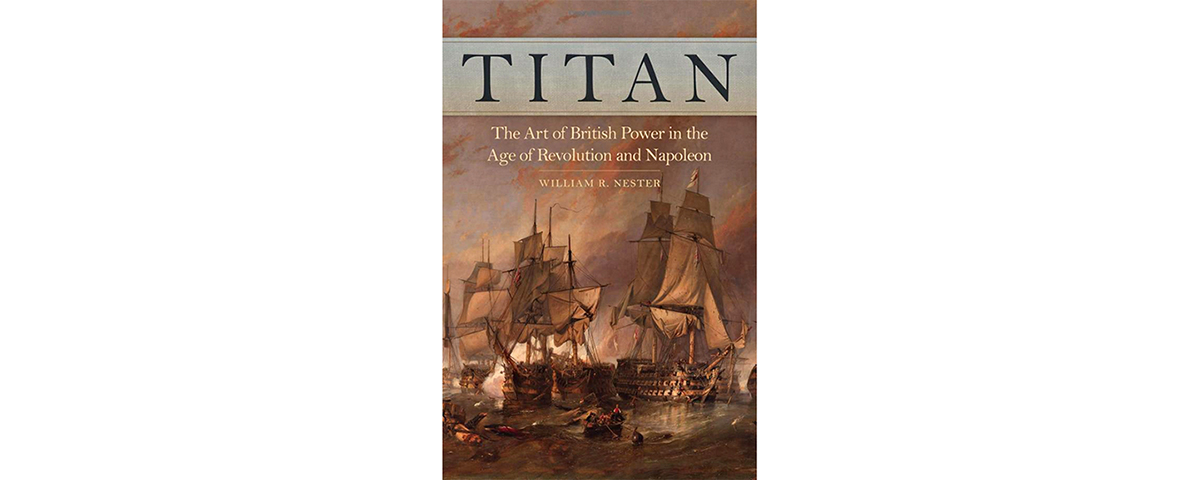Titan: The Art of British Power in the Age of Revolution and Napoléon, by William R. Nester, University of Oklahoma Press, Norman, 2016, $34.95
In a book that bears close examination in the wake of Britain’s recent secession from the European Union, Nester examines how Britain became Great Britain and a great power by the end of the Napoleonic wars. According to the author, William Pitt—the nation’s youngest and second longest-serving prime minister—was the driver behind Britain’s ultimate defeat of France. Although he died a decade before Waterloo, he was known thereafter as the “savior of Europe.” Pitt arrested and eventually reversed the national debt with a 1786 bill that raised taxes, largely on the wealthy, while streamlining government so it did more and cost less. From 1784 to 1792 he kept the annual national budget steady, with some £1.5 million in civil expenses and £4 million in military expenses. Meanwhile, he increased the Royal Navy’s budget, permitting it to sortie 90 ships of the line in 1793.
From 1789 to 1815 British leaders devised and led most of the seven coalitions against the revolutionary and Napoleonic governments of France. This was not without its challenges; for example, all of the Allies favored financing their efforts with silver, not paper promissory notes. The war also multiplied the enlisted force of the field army, which cost a lot more money. Without the financial transformations achieved under Pitt’s watch, even with the resources and resourcefulness that would soon launch its industrial revolution, Britain could not have afforded the expenses of war.
From the apex of Britain’s military contribution the author turns the reader’s attention to Arthur Wellesley, future Duke of Wellington, the general who never lost a major battle and who considered Salamanca, Vittoria and Waterloo his finest hours. On a more dramatic note, the author credits Horatio Nelson with taking the “total war” concept to sea. Nester also underlines the role played by Robert Stewart, Viscount Castlereagh, another great British statesman of the age. Austria’s Klemens von Metternich paid tribute to the latter for being “the most European and the least insular of all the foreign ministers.” A good many readers of this excellent book may agree with the author that present-day Britain is in need of both statesmen and commanders of this bygone caliber.
—Thomas Zacharis





